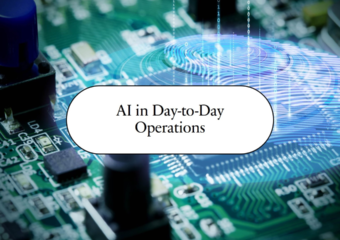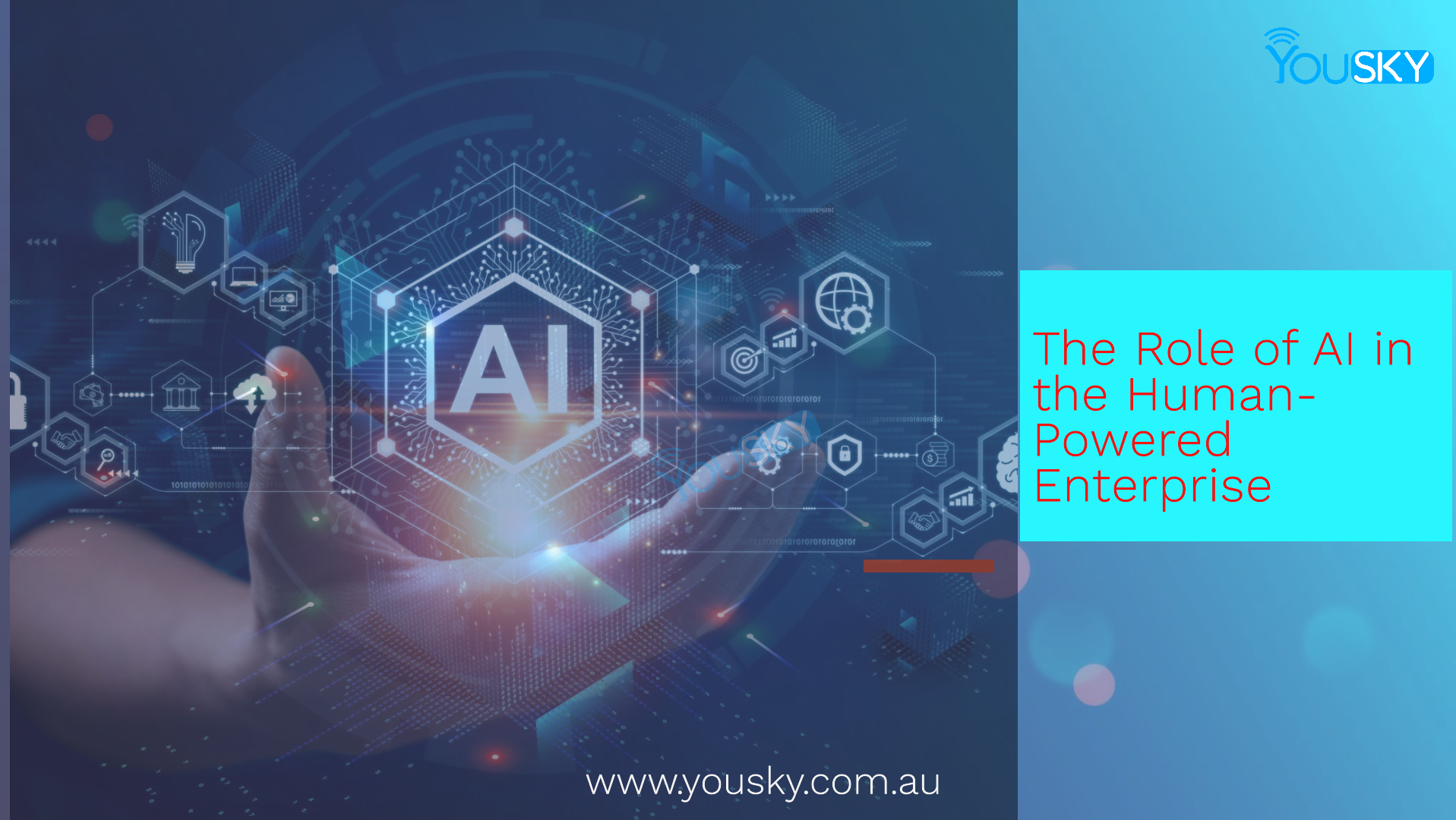
The Practical Use Cases of Artificial Intelligence in Day-to-Day Operations of a Business
Introduction
Artificial Intelligence (AI) has moved from a futuristic concept to an essential element of modern business operations. Across various industries, companies leverage AI to enhance efficiency, drive innovation, and gain competitive advantages. This article explores the practical use cases of AI in everyday business activities, showcasing how businesses integrate AI into their workflows for transformative outcomes.
1. AI in Customer Service
Automated Support Systems
AI-powered chatbots and virtual assistants revolutionize customer service by providing instant, 24/7 support. These systems handle a wide range of queries, from simple FAQs to complex troubleshooting, freeing human agents for more nuanced tasks. For instance, Bank of America’s virtual assistant, Erica, helps customers manage their finances, while Sephora’s chatbot offers personalized beauty advice.
Personalized Customer Experience
AI algorithms analyze customer data to deliver personalized experiences. By understanding customer preferences and behaviors, companies can offer tailored recommendations, promotions, and services. Amazon’s recommendation engine, which suggests products based on past purchases and browsing history, exemplifies this approach, significantly enhancing customer satisfaction and loyalty.
Sentiment Analysis
Natural Language Processing (NLP) tools gauge customer sentiment through social media, reviews, and feedback forms. By analyzing this data, companies can proactively address issues and improve their offerings. For example, brands like Starbucks use sentiment analysis to monitor customer feedback and adapt their strategies accordingly.
2. AI in Marketing and Sales
Targeted Advertising
AI creates highly targeted advertising campaigns by analyzing consumer data and predicting which audiences are most likely to convert. This ensures marketing budgets are spent efficiently and effectively. Companies like Netflix use AI to recommend shows and movies to users, significantly increasing engagement and retention.
Sales Forecasting
Machine learning models predict future sales trends by analyzing historical data, market conditions, and other variables. Accurate sales forecasting helps businesses manage inventory, budget, and strategize. Salesforce Einstein, for instance, provides predictive analytics to help sales teams forecast and prioritize opportunities.
Lead Generation and Scoring
AI automates lead generation by identifying potential customers based on data patterns. Additionally, AI-driven lead scoring prioritizes leads based on their likelihood to convert, enabling sales teams to focus on high-potential prospects. HubSpot’s AI tools streamline this process, improving efficiency and effectiveness in sales operations.
3. AI in Human Resources
Recruitment and Talent Acquisition
AI streamlines recruitment by screening resumes, scheduling interviews, and conducting initial assessments. AI tools help identify the best candidates based on job requirements and cultural fit. LinkedIn’s Talent Insights, for instance, offers valuable data-driven insights to help HR teams make informed hiring decisions.
Employee Engagement and Retention
AI-powered platforms analyze employee feedback, performance data, and engagement metrics to identify potential issues and recommend actions to improve employee satisfaction and retention. Companies like Glint use AI to provide real-time insights into employee engagement, helping organizations foster a positive work environment.
Performance Management
AI systems facilitate continuous performance management by providing real-time feedback and personalized development plans. These systems help managers make informed decisions about promotions, training, and other HR activities. Platforms like Culture Amp use AI to enhance performance reviews and employee development.
4. AI in Finance and Accounting
Automated Bookkeeping
AI automates repetitive accounting tasks such as data entry, invoice processing, and reconciliation. This reduces errors and frees accountants for more strategic activities. Tools like QuickBooks and Xero use AI to streamline financial management, enhancing accuracy and efficiency.
Fraud Detection
AI algorithms detect fraudulent activities by analyzing patterns and anomalies in financial transactions. These systems alert companies to potential fraud in real-time, enabling swift action. PayPal’s AI-driven fraud detection system, for example, helps secure millions of transactions daily, protecting both the company and its customers.
Financial Planning and Analysis
AI tools provide insights into financial performance by analyzing data from various sources. Predictive analytics help businesses forecast revenues, expenses, and cash flows, aiding in better financial planning. Companies like Microsoft use AI to enhance financial analysis and strategic decision-making.
5. AI in Operations and Supply Chain Management
Inventory Management
AI optimizes inventory levels by predicting demand based on historical data, market trends, and external factors. This ensures companies maintain optimal stock levels, reducing costs and preventing stockouts. Amazon’s sophisticated AI-driven supply chain management system exemplifies how AI can streamline inventory processes.
Logistics and Transportation
AI enhances logistics by optimizing routes, predicting delays, and improving fleet management. This leads to faster delivery times, reduced fuel consumption, and lower transportation costs. Companies like UPS use AI to optimize delivery routes, significantly improving operational efficiency.
Supplier Relationship Management
AI tools analyze supplier performance data to identify the best suppliers and predict potential risks. This helps companies build stronger, more reliable supply chains. Platforms like Llamasoft use AI to provide insights into supplier performance, enabling better decision-making and risk management.
6. AI in Product Development
Research and Development
AI accelerates research and development by analyzing vast amounts of data to identify new trends, materials, and technologies. This enables companies to innovate faster and bring products to market more quickly. Pharmaceutical companies, for instance, use AI to expedite drug discovery processes, reducing time-to-market for new treatments.
Quality Control
AI-powered inspection systems detect defects in products during the manufacturing process. These systems ensure higher quality standards and reduce the rate of defective products reaching customers. NVIDIA, for example, uses AI to maintain quality control in its manufacturing processes.
Customer Feedback Analysis
AI analyzes customer feedback to identify areas for product improvement. By understanding customer needs and preferences, companies can refine their products to better meet market demands. Companies like Apple use AI to analyze user feedback and continuously enhance their products and services.
7. AI in IT and Cybersecurity
Network Monitoring
AI continuously monitors network activity to detect and respond to unusual behavior. This proactive approach helps prevent cyber attacks and minimize downtime. Companies like Darktrace use AI to provide advanced threat detection and response, protecting critical IT infrastructure.
Threat Detection and Response
AI-driven cybersecurity tools analyze data from various sources to identify potential threats. Automated response systems can mitigate these threats in real-time, protecting sensitive information and systems. CrowdStrike’s AI-powered platform, for instance, offers robust threat detection and rapid incident response.
IT Support and Maintenance
AI chatbots and virtual assistants provide instant support for common IT issues. Predictive maintenance tools forecast potential hardware and software failures, allowing for timely interventions. IBM Watson, for example, enhances IT support operations with AI-driven insights and automation.
8. AI in Decision Making and Strategic Planning
Data-Driven Insights
AI systems analyze large datasets to uncover trends, patterns, and correlations that might not be apparent to human analysts. These insights inform strategic decisions, helping businesses stay competitive. Google’s data analytics capabilities demonstrate how AI can transform raw data into actionable insights.
Scenario Analysis
AI models simulate different business scenarios based on various inputs and assumptions. This helps companies evaluate potential outcomes and make more informed strategic choices. Tools like Palantir offer advanced scenario analysis capabilities, aiding in strategic planning and decision-making.
Risk Management
AI identifies and assesses risks by analyzing internal and external data. This enables companies to proactively address potential issues and develop robust risk management strategies. Financial institutions, for example, use AI to monitor and manage risks more effectively, ensuring business continuity.
Conclusion
Integrating Artificial Intelligence into daily business operations is no longer a luxury but a necessity for companies aiming to stay competitive in today’s fast-paced market. From enhancing customer service to optimizing supply chains, AI offers practical solutions that drive efficiency, innovation, and growth. As AI technology continues to evolve, its applications in business will undoubtedly expand, opening new avenues for companies to explore and leverage.
—
This comprehensive article on LinkedIn highlights the myriad ways AI can transform everyday business operations. By focusing on practical use cases and providing real-world examples, it showcases the tangible benefits of AI, encouraging companies to embrace this transformative technology.
#ArtificialIntelligence #AIinBusiness #BusinessInnovation #AIAutomation #CustomerServiceAI #MarketingAI #SalesAI #HRtech #FinanceAI #AccountingAI #SupplyChainAI #OperationsManagement #ProductDevelopment #ITsecurity #CybersecurityAI #DataDriven #AIInsights #PredictiveAnalytics #MachineLearning #DeepLearning #Chatbots #VirtualAssistants #SmartAutomation #DigitalTransformation #AITrends #TechInnovation #FutureOfWork #BusinessEfficiency #TechSolutions #AIApplications
Don’t miss out on the opportunity to revolutionize your business by incorporating AI in your business. Contact us at info@yousky.com.au to learn more about it with a free Consultation session.


